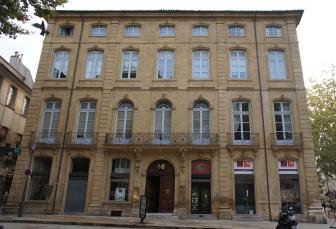Article
ko ko thett on the sadly unhelpful nature of poetry
Poetitorial: not saving the planet

August 20, 2017
A caveat for poets who seek publication: trees are better off without your poetry which will be printed on paper made of slaughtered trees. Paper made of trees from sustainable forests? The so-called sustainable forests are merely plantations for the paper industry whose exploitation of nature and labour is well documented. What about recycled paper? It is still paper. Period!
Poetry will not save the planet. Far from it. It is already contributing to global warming, or “weather extremes” if you will. Just think of tomes and tomes of poetry collections sitting in the dust on discount bookshelves in bookstores worldwide. Think of their water content. Think of their carbon footprint. Recently a surge in poetry book sales in the US and Europe has been reported. This is even more alarming. Poetry consumerism is certainly not poetic, and no consumerism is ecological.
Online poetry may save paper but not the planet. Once you turn on your computer someone is mining coal or gas, or damming a river for you. There must be a billion people on the upper side of the digital divide turning on their computers at the same time every single minute. Certainly only one or two friends of yours out of a billion will chance upon your poem and click it accidentally. And yet, if your poem makes them think, their brain will need more energy. The brainier the poem, the more harm is done to the planet.
That’s why a great deal of respect is due to poets like Emily Dickinson who hardly sought publication in their lifetime. It transpires that Dickinson was very much ahead of her time. She was already using scrap paper and used envelopes in the mid-nineteenth century. And she didn't talk about it much. Dickinson would certainly abhor the idea of omnibus poetry collections printed in her name today.
Eco-poetry, just like eco-tourism or anything in the market that purports to be ecological, is counterproductive. John Ashbery’s famous dictum, “A famous poet is not famous”, can be rehashed, “Eco-poetry is not ecological”. A clove or two, garlic smells the same. A print or two, poetry ruins nature.
Besides writing and reading poetry, poets are consumers whose mouths eat and drink. I am sure you know some jet-setting poet professors who always get back to you with the message, “Sorry. I am travelling. I might be a little slow to respond.” That means they are flying somewhere, leaving tons of carbon in their wake.
It’s a good thing most poets are destitute. The first thing Derek Walcott said to his companion Sigrid Nama when the news of himself being awarded Nobel Prize hit him was “Hurry, find a house!” He bought not just a house, but a luxury mansion with a pool on his home island of St. Lucia. A pool he hardly used as he loved to swim in the sea. What a waste!
The chainsaw in a poet’s mouth is definitely more destructive than the lumber mill in a Wall Street stockbroker’s. Lest I lose my admiration for Wislawa Szymborska, I will now stop wondering what she did with her Nobel Prize money. [Poet, translator and editor ko ko thett’s book of poems, The Burden of Being Burmese (Zephyr, 2016), is the first ever full-length collection in English by a Burmese poet.]
Majorie Perloff claims “art is disinterested”. Art is disinterested, and selfish. Poetry is the most selfish art. Unless the coital union of two water buffaloes or any other act of nature is a poetry performance to you, poetry is an exclusively human art. Even among humans, poetry speaks only to humans who share the same language, verbal or visual.
Poems don’t speak to oceans, mountains, animals or trees. It’s usually the other way around. You can’t play a harp to a water buffalo. She will gore you to death if she deems you an interloper in her love affair. You may go read your poems to trees, but that would only disturb the silence of trees.A caveat for poets who seek publication: trees are better off without your poetry which will be printed on paper made of slaughtered trees. Paper made of trees from sustainable forests? The so-called sustainable forests are merely plantations for the paper industry whose exploitation of nature and labour is well documented. What about recycled paper? It is still paper. Period!
Poetry will not save the planet. Far from it. It is already contributing to global warming, or “weather extremes” if you will. Just think of tomes and tomes of poetry collections sitting in the dust on discount bookshelves in bookstores worldwide. Think of their water content. Think of their carbon footprint. Recently a surge in poetry book sales in the US and Europe has been reported. This is even more alarming. Poetry consumerism is certainly not poetic, and no consumerism is ecological.
Online poetry may save paper but not the planet. Once you turn on your computer someone is mining coal or gas, or damming a river for you. There must be a billion people on the upper side of the digital divide turning on their computers at the same time every single minute. Certainly only one or two friends of yours out of a billion will chance upon your poem and click it accidentally. And yet, if your poem makes them think, their brain will need more energy. The brainier the poem, the more harm is done to the planet.
That’s why a great deal of respect is due to poets like Emily Dickinson who hardly sought publication in their lifetime. It transpires that Dickinson was very much ahead of her time. She was already using scrap paper and used envelopes in the mid-nineteenth century. And she didn't talk about it much. Dickinson would certainly abhor the idea of omnibus poetry collections printed in her name today.
Eco-poetry, just like eco-tourism or anything in the market that purports to be ecological, is counterproductive. John Ashbery’s famous dictum, “A famous poet is not famous”, can be rehashed, “Eco-poetry is not ecological”. A clove or two, garlic smells the same. A print or two, poetry ruins nature.
Besides writing and reading poetry, poets are consumers whose mouths eat and drink. I am sure you know some jet-setting poet professors who always get back to you with the message, “Sorry. I am travelling. I might be a little slow to respond.” That means they are flying somewhere, leaving tons of carbon in their wake.
It’s a good thing most poets are destitute. The first thing Derek Walcott said to his companion Sigrid Nama when the news of himself being awarded Nobel Prize hit him was “Hurry, find a house!” He bought not just a house, but a luxury mansion with a pool on his home island of St. Lucia. A pool he hardly used as he loved to swim in the sea. What a waste!
The chainsaw in a poet’s mouth is definitely more destructive than the lumber mill in a Wall Street stockbroker’s. Lest I lose my admiration for Wislawa Szymborska, I will now stop wondering what she did with her Nobel Prize money. [Poet, translator and editor ko ko thett’s book of poems, The Burden of Being Burmese (Zephyr, 2016), is the first ever full-length collection in English by a Burmese poet.]
© ko ko thett
Sponsors





Partners
LantarenVenster – Verhalenhuis Belvédère

